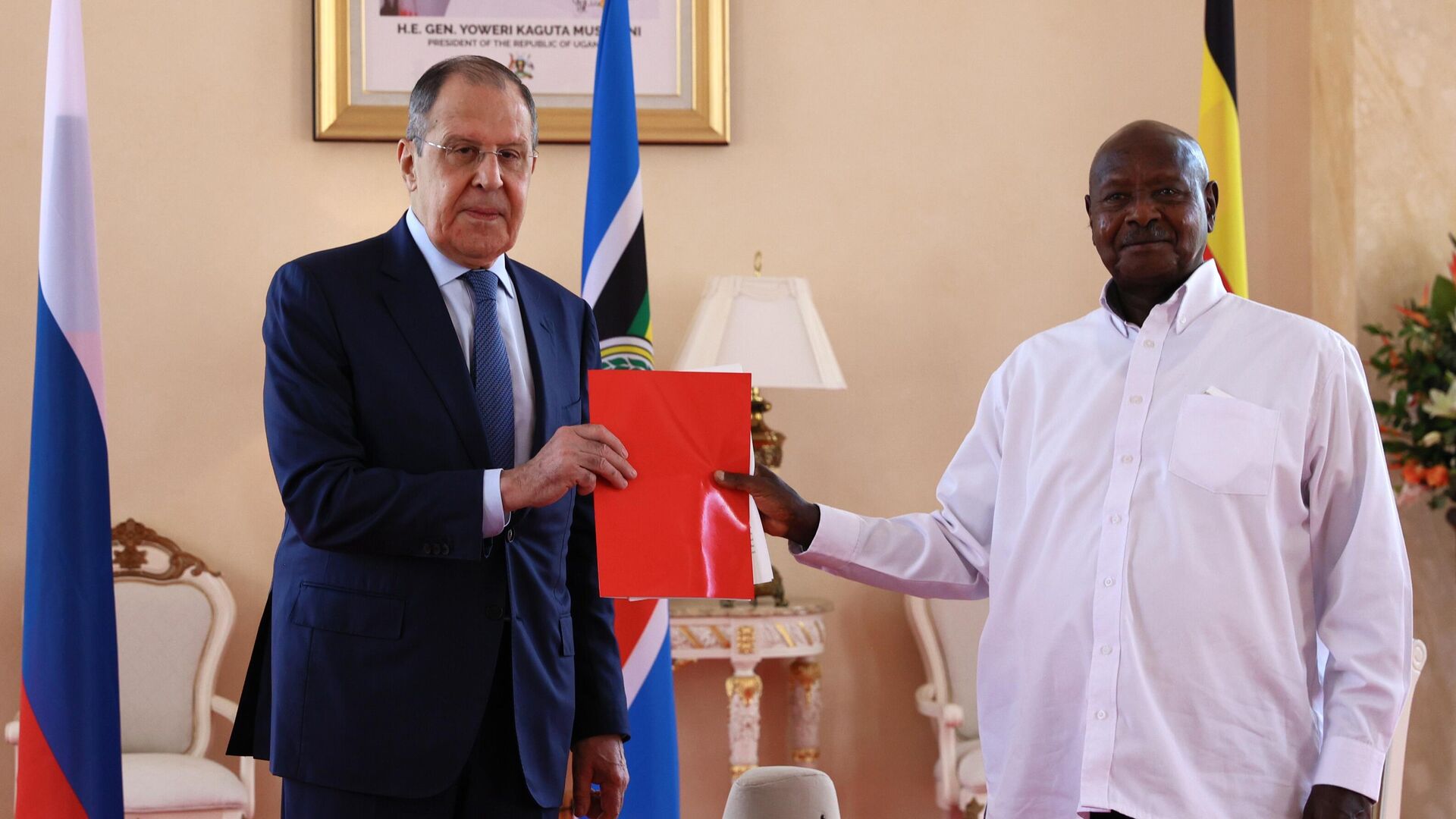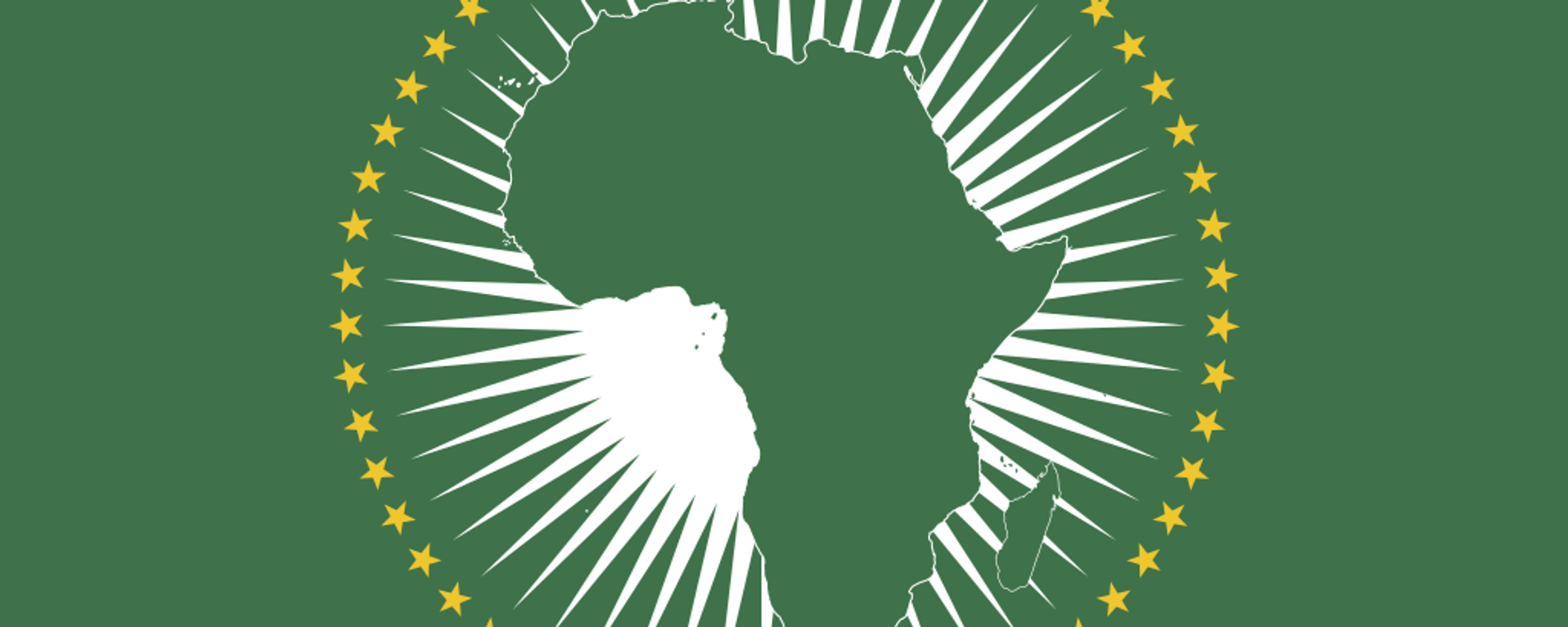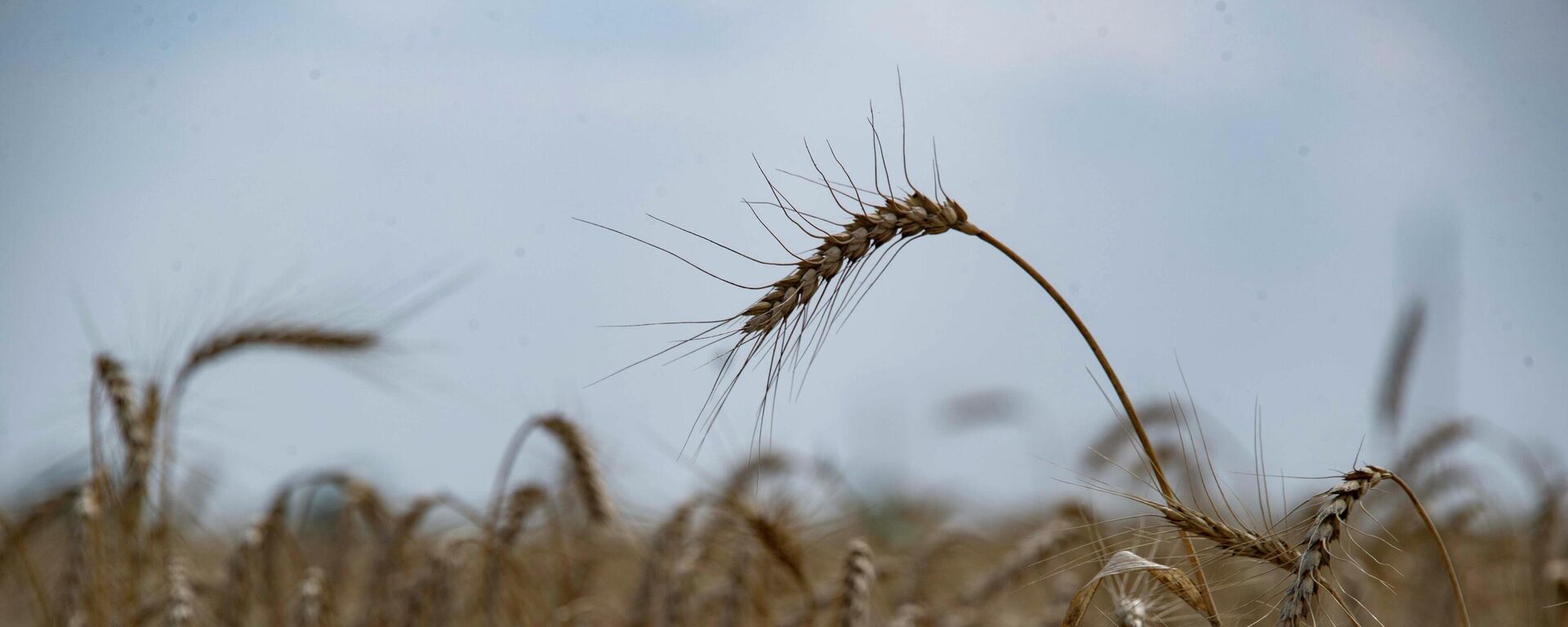https://sputnikglobe.com/20220726/lavrov-russia-would-enhance-presence-in-africa-regardless-of-wests-actions-1097813564.html
Africa Will Play a Bigger Role in Russia's Foreign Policy, Lavrov Tells Sputnik
Africa Will Play a Bigger Role in Russia's Foreign Policy, Lavrov Tells Sputnik
Sputnik International
Russia is currently developing a new edition in the country's foreign policy as western nations impose fresh sanctions against Moscow that result in severed... 26.07.2022, Sputnik International
2022-07-26T10:53+0000
2022-07-26T10:53+0000
2022-11-14T10:49+0000
africa
russia
sergey lavrov
foreign policy
west
sanctions
africa insight
https://cdn1.img.sputnikglobe.com/img/07e6/07/1a/1097816313_0:0:3172:1785_1920x0_80_0_0_68f44a8020ca40d35cb2bbce70d9b8de.jpg
The new foreign policy guidelines being developed by the Kremlin should include a provision for enhancing ties between Russia and African countries regardless of the actions that western countries take, Russian Foreign Minister Sergey Lavrov has stated, responding to Sputnik's question during his joint press conference with Ugandan President Yoweri Museveni.The minister likewise confirmed that the West's current policy, which mostly boils down to attempts at isolating Moscow and hitting it with sanctions, prompted a greater emphasis on Africa in the yet-to-be-released foreign policy guidelines.The Russian foreign minister added that apart from the ever-increasing importance of the African line of the Ministry's work, the western line of work effectively "cancels itself out".Lavrov stressed that in addition to boosting cooperation with the African continent in the Russian foreign policy guidelines, Moscow is also preparing for the second Russia-Africa summit, after the success of the first one organized in 2019 in Sochi, Russia. The second summit is set to take place in 2023 and preparations have already begun, the minister said, adding that participant countries' working groups are already discussing parameters of future meaningful cooperation agreements.Western SanctionsRussia's increased pivot towards Africa, as well as Asia, comes while western sanctions increasingly cut ties with Moscow, citing its decision to launch a special military operation in Ukraine. Moscow's relations with the West, which had already been at historic lows after the 2014 coup in Ukraine in which the West played a major role, deteriorated rapidly as western countries started slapping new sanctions against the Russian government, officials, economy and businesses after February 24 – the day when the operation began.In total, the West has imposed seven packages of sanctions that target the Russian banking system, oil, gold and other wares. In addition, a handful of other countries started to unilaterally cut cooperation with Russia in various spheres.The sanctions not only deteriorated inter-governmental relations, but the flak from them also caused the deterioration of business ties. Sanctions against banks and other sectors of the Russian economy undermined logistics and financial routes, prompting many companies to leave the country due to the inability to import wares or components for their production in Russia.Sanctions' Impact on Africa and Rest of the GlobeThe Kremlin condemned western sanctions as illegal and pointed to their global negative impact on the lives of people not just in Russia and the West, but elsewhere in the world. Following the introduction of the first sanctions packages, already-high inflation in many countries jumped even higher, while oil prices surged bagging along gasoline pricetags, and global fertilizer costs skyrocketed.In addition, western countries' action in concert with Ukraine's mining of its own waters prompted a global shortage of grain as shipments from two major producers (Russia and Ukraine) were ground to a near halt.The West attempted to point the finger at Russia, claiming that its special military operation was to blame. Moscow rejected these claims, stressing that grain supplies from Russia were undermined by western sanctions, which prevented Russian ships from entering European ports and European vessels from docking in Russian ports. As a result, global grain prices surged, impacting countries of the Middle East and Africa and sparking fears of possible famine.
https://sputnikglobe.com/20220723/back-to-africa-russias-lavrov-set-for-regional-tour-of-continent-of-the-future-1097730612.html
https://sputnikglobe.com/20220725/us-state-dept-says-un-brokered-deal-to-export-ukraine-grain-needs-to-endure-1097792091.html
africa
west
Sputnik International
feedback@sputniknews.com
+74956456601
MIA „Rossiya Segodnya“
2022
Tim Korso
https://cdn1.img.sputnikglobe.com/img/07e6/03/0d/1093831826_0:0:216:216_100x100_80_0_0_e3f43a960af0c6c99f7eb8ccbf5f812c.jpg
Tim Korso
https://cdn1.img.sputnikglobe.com/img/07e6/03/0d/1093831826_0:0:216:216_100x100_80_0_0_e3f43a960af0c6c99f7eb8ccbf5f812c.jpg
News
en_EN
Sputnik International
feedback@sputniknews.com
+74956456601
MIA „Rossiya Segodnya“
Sputnik International
feedback@sputniknews.com
+74956456601
MIA „Rossiya Segodnya“
Tim Korso
https://cdn1.img.sputnikglobe.com/img/07e6/03/0d/1093831826_0:0:216:216_100x100_80_0_0_e3f43a960af0c6c99f7eb8ccbf5f812c.jpg
sergey lavrov, foreign policy, west, sanctions, africa insight
sergey lavrov, foreign policy, west, sanctions, africa insight
Africa Will Play a Bigger Role in Russia's Foreign Policy, Lavrov Tells Sputnik
10:53 GMT 26.07.2022 (Updated: 10:49 GMT 14.11.2022) Russia is currently developing a new edition in the country's foreign policy as western nations impose fresh sanctions against Moscow that result in severed political and business ties.
The new foreign policy guidelines being developed by the Kremlin should include a provision for enhancing ties between Russia and African countries regardless of the actions that western countries take, Russian Foreign Minister Sergey Lavrov has stated, responding to Sputnik's question during his joint
press conference with Ugandan President Yoweri Museveni.
The minister likewise confirmed that the
West's current policy, which mostly boils down to attempts at isolating Moscow and hitting it with sanctions, prompted a greater emphasis on Africa in the yet-to-be-released foreign policy guidelines.
"We have our principle, our long-term relations, which do not depend on the current global situation and so, apparently, our work in the sphere of ties with African countries will expand. But given the current situation and the current activities undertaken by the West, objectively the role of the African continent will grow in our work," Lavrov said.
The Russian foreign minister added that apart from the
ever-increasing importance of the African line of the Ministry's work, the western line of work effectively "cancels itself out".
Lavrov stressed that in addition to boosting cooperation with the African continent in the Russian foreign policy guidelines, Moscow is also preparing for the second Russia-Africa summit, after the success of the first one organized in 2019 in Sochi, Russia. The second summit is set to take place in 2023 and preparations have already begun, the minister said, adding that participant countries' working groups are already discussing parameters of future
meaningful cooperation agreements.
Russia's increased pivot towards Africa, as well as Asia, comes while western sanctions increasingly cut ties with Moscow, citing its decision to launch a special military operation in Ukraine. Moscow's relations with the West, which had already been at historic lows after the 2014 coup in Ukraine in which the West played a major role, deteriorated rapidly as western countries started slapping new sanctions
against the Russian government, officials, economy and businesses after February 24 – the day when the operation began.
In total, the West has imposed seven packages of sanctions that target the Russian banking system, oil, gold and other wares. In addition, a handful of other countries started to unilaterally cut cooperation with Russia in various spheres.
The sanctions not only deteriorated inter-governmental relations, but the flak from them also caused the deterioration of business ties. Sanctions against banks and other sectors of the Russian economy undermined logistics and financial routes, prompting many companies to leave the country due to the inability to import wares or components for their production in Russia.
Sanctions' Impact on Africa and Rest of the Globe
The Kremlin condemned western sanctions as illegal and pointed to their global negative impact on the lives of people not just in Russia and the West, but elsewhere in the world. Following the introduction of the first sanctions packages, already-high inflation in many countries jumped even higher, while oil prices surged bagging along gasoline pricetags, and global fertilizer costs skyrocketed.
In addition, western countries' action in concert with Ukraine's mining of its own waters prompted a global shortage of grain as shipments from two major producers (Russia and Ukraine) were ground to a near halt.
The West attempted to point the finger at Russia, claiming that its special military operation was to blame. Moscow
rejected these claims, stressing that grain supplies from Russia were undermined by western sanctions, which prevented Russian ships from entering European ports and European vessels from docking in Russian ports. As a result, global grain prices surged, impacting countries of the Middle East and Africa and sparking fears of possible famine.





